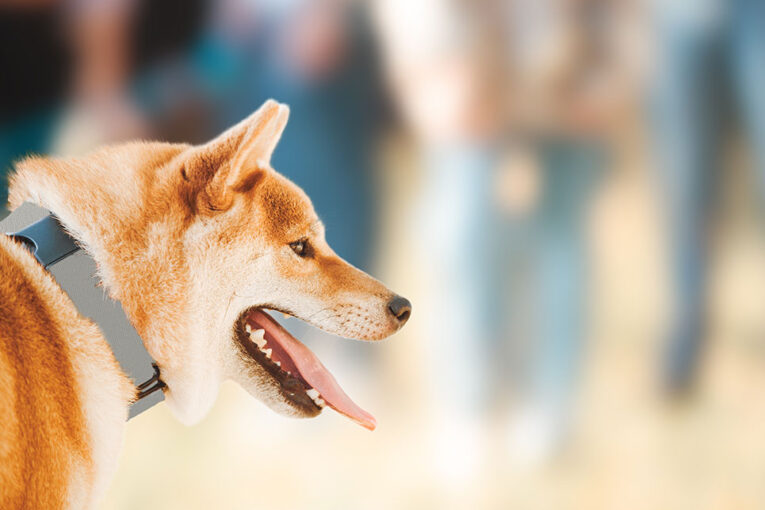Will My Home Insurance Cover a Dog Bite in Colorado?
Dog bites can lead to unexpected and often substantial costs. If a dog you own bites someone or if someone else’s dog has injured you, you may be wondering how compensation works and if your homeowner’s insurance policy covers the incident.
Colorado has specific rules regarding dog bite liability, and while insurance coverage can vary, many standard homeowner’s policies do provide coverage for dog bites. This article will explore the ins and outs of dog bite coverage in Colorado, what circumstances affect liability, and steps to take if you or a loved one has been bitten.
If you or a loved one was bitten by a dog in Fort Collins or the surrounding communities, we invite you to call our office at 970-893-8857 to schedule a consultation. As experienced Colorado dog bite attorneys, we can discuss the facts of your case, explain your legal options, and zealously advocate for the maximum compensation possible for your injuries.
Does Homeowner’s Insurance Typically Cover Dog Bites?
In many cases, homeowner’s insurance policies cover liability for injuries caused by pets, including dog bites. This means that if a dog bites someone on the owner’s property or elsewhere, the policy may cover the victim’s medical expenses, lost wages, and other damages.
Coverage can vary, and there are often exceptions depending on the policy’s specific terms and the insurance provider. Some policies may exclude certain breeds or dogs with a history of aggressive behavior, so it is crucial to review the details of your policy carefully.
If you rent your home, a standard renters insurance policy may also cover dog bite liability. Just as with homeowner’s insurance, renters’ insurance typically provides coverage for incidents involving a tenant’s dog, though breed restrictions and policy limits apply.
What Does Colorado Law Say About Dog Bite Liability?
Colorado follows a strict liability approach for dog bite cases under certain conditions. This means that a dog owner may be held responsible for damages caused by a dog bite regardless of whether the dog has a history of aggression or the owner’s knowledge of any past biting incidents. According to Colorado Revised Statutes § 13-21-124, the strict liability rule applies if:
- The bite results in serious bodily injury or death.
- The victim was lawfully on public or private property when the bite occurred.
Under strict liability, the dog’s owner is responsible for the victim’s injuries, even if the owner did not know the dog was dangerous. This law applies specifically to physical injuries caused by bites, not other types of dog-related injuries, such as a dog knocking someone over. However, if a dog causes injuries without biting, the owner could still be held liable under negligence laws if they failed to take reasonable care to prevent the incident.
Colorado law does allow for some exceptions to strict liability. For instance, if the victim provoked the dog, trespassed on the property, or was performing a crime at the time of the incident, the dog owner may not be held liable. Additionally, police or military dogs performing official duties are exempt from strict liability in most cases.
What Costs Are Covered by Homeowner’s Insurance After a Dog Bite?
A standard homeowner’s insurance policy typically covers several types of damages resulting from a dog bite, including:
- Medical Expenses: This can cover emergency care, surgeries, medications, and follow-up visits needed due to the injury.
- Lost Wages: If the victim cannot work because of their injuries, insurance may cover the loss of income.
- Pain and Suffering: Insurance may compensate for the physical pain and emotional distress caused by the bite.
- Property Damage: If the dog bite incident also caused property damage, such as torn clothing or broken personal items, insurance might cover these costs as well.
Many policies have coverage limits, so it’s essential to understand how much liability coverage you have. Limits typically range from $100,000 to $300,000 per incident, though higher limits can be chosen when purchasing the policy. It’s also possible to buy an umbrella policy for additional liability protection.
Are There Breed Restrictions in Colorado?
In Colorado, some insurance providers impose breed restrictions, meaning they may deny coverage for certain high-risk breeds. Breeds like Pit Bulls, Rottweilers, and Doberman Pinschers are often on these restricted lists, though the specifics vary by insurance company. Breed restrictions are controversial, as not all dogs of certain breeds are aggressive, but these restrictions are common in the insurance industry.
If you own a breed restricted by your insurance provider, you may still be able to find coverage through companies that specialize in policies for high-risk breeds, though premiums may be higher. It’s essential to disclose your dog’s breed accurately when applying for homeowner’s or renter’s insurance, as failing to do so could lead to denied claims or canceled coverage.
What Steps Should I Take if My Dog Bites Someone?
If your dog bites someone, there are critical steps to follow to protect both parties and comply with Colorado’s legal requirements:
- Seek Medical Help for the Victim: Encourage the person who was bitten to get medical attention immediately. Dog bites can lead to severe infections if not treated promptly.
- Exchange Information: Exchange contact details with the victim and, if applicable, any witnesses. It’s also a good idea to provide your homeowner’s insurance information if you believe the claim will go through your policy.
- Report the Incident: Colorado law may require that you report the dog bite to your local animal control agency, especially if the bite results in severe injury.
- Cooperate with the Insurance Company: When the victim files a claim with your insurance company, cooperate fully. Provide any requested documentation and be prepared to answer questions about the dog and the circumstances of the bite.
Additionally, if your insurance provider is covering the incident, they may request that you take steps to prevent future bites. This could include keeping your dog confined, using a muzzle, or attending training classes. Failure to follow these recommendations could result in higher premiums or even a cancellation of your policy.
Can I Still File a Claim if I Was Bitten by a Friend’s Dog?
Many dog bite incidents involve dogs owned by family, friends, or neighbors, which can make victims hesitant to pursue compensation. However, homeowner’s insurance exists to cover precisely these types of situations, allowing victims to recover without directly impacting their relationship with the dog owner. By filing a claim through the insurance, you’re seeking compensation from the provider, not the individual, which can help protect personal relationships while still addressing the injury’s financial impact.
If a friend’s dog bit you, it’s still essential to follow the steps of seeking medical attention and documenting the incident. As experienced dog bite attorney, we can help you navigate the insurance process and ensure you pursue the compensation you’re entitled to without strain on personal relationships.
What Should I Do if My Claim Is Denied?
While homeowner’s insurance policies typically cover dog bites, insurance providers sometimes deny claims. Reasons for denial can include breed restrictions, lack of adequate policy coverage, or a claim that the victim provoked the dog. If your claim is denied, you may have options for recourse, including:
- Reviewing the Policy: Check the specifics of your homeowner’s insurance policy to understand if any breed or coverage restrictions apply.
- Appealing the Decision: You may appeal the denial with the help of an attorney, especially if you believe the policy should cover the incident.
- Filing a Lawsuit: If insurance coverage is unavailable or insufficient, victims may still pursue a claim directly against the dog owner through a personal injury lawsuit.
Working with a Colorado dog bite attorney can provide valuable support in cases where insurance denies a claim. In Colorado, where strict liability laws apply, dog bite victims often have strong grounds for seeking compensation, even if insurance presents challenges.
Do Renters Need Separate Insurance for Dog Bite Liability?
For renters, a standard renters insurance policy often includes personal liability coverage for dog bites. However, as with homeowner’s insurance, renters policies may have breed restrictions or coverage limits. If you rent and own a dog, consider checking your policy carefully to confirm the details of your liability coverage, especially if you own a commonly restricted breed.
In cases where renters’ insurance doesn’t cover dog bites, you may be able to purchase an additional liability policy specifically for your dog, which can provide peace of mind for pet owners living in rented spaces.
Colorado Statutes and Dog Bite Liability
In Colorado, dog owners are held to a strict liability standard under Colorado Revised Statutes § 13-21-124 for incidents that cause severe injuries. However, if the injuries are less serious or if strict liability does not apply, victims may pursue compensation through a negligence claim. Understanding the law in these cases can help both dog owners and victims navigate their rights and responsibilities.
- Strict Liability: Colorado Revised Statutes § 13-21-124 outlines that dog owners are strictly liable for serious injuries caused by their dogs, meaning that the injured party does not need to prove the owner was negligent.
- Negligence: If strict liability does not apply, Colorado also allows victims to file claims based on negligence, which involves proving the owner failed to exercise reasonable care to prevent the dog bite.
Strict liability laws make it easier for victims to seek compensation for injuries that meet the criteria, and these laws underline the importance of responsible pet ownership.
How Can an Attorney Help in a Colorado Dog Bite Case?
Working with a top Colorado dog bite attorney can be essential in these cases, especially when dealing with insurance companies. As experienced dog attack attorneys, we can guide you through every step, from filing a claim with an insurance provider to gathering evidence for a potential lawsuit. An attorney’s support is particularly valuable if your claim is denied, as we can help you explore other options for seeking fair compensation, whether through an appeal or a lawsuit.
Legal representation can help you maximize your recovery, covering medical expenses, lost wages, pain and suffering, and any other losses from the dog bite incident. With Colorado’s strict liability laws, having knowledgeable legal support can ensure that you are fairly compensated for your injuries.
Contact Our Office for Guidance From An Experienced Colorado Dog Bite Lawyer
At Anzen Legal Group, we understand how difficult and costly a dog bite incident can be, especially when it involves a loved one or neighbor’s dog. Our team represents injury clients on a contingency fee basis, which means you won’t pay any fees unless we recover compensation on your behalf. If you or someone you know has been injured by a dog in Colorado, we encourage you to contact our office to schedule a consultation. We’re here to discuss your legal rights and options, ensuring that you receive the support and guidance you need.





